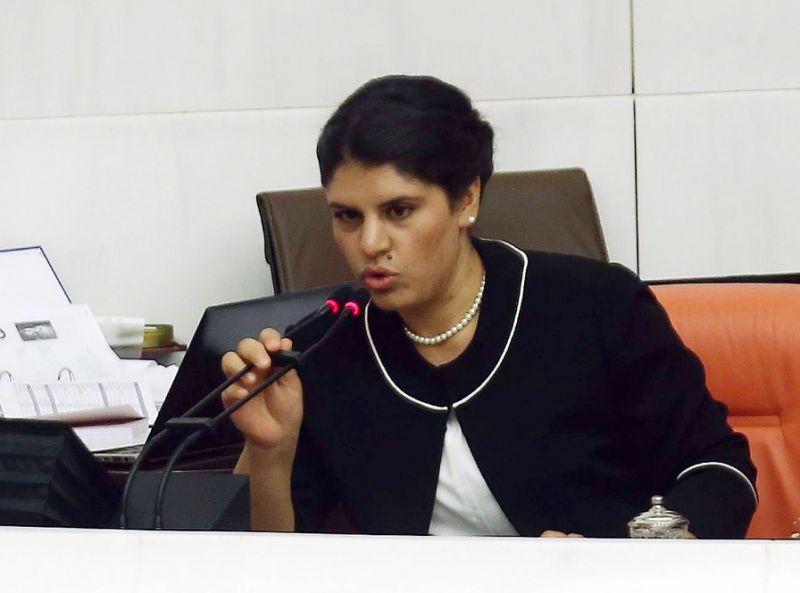A Turkish court on Thursday handed the MP niece of the jailed leader of the outlawed Kurdistan Workers' Party (PKK), Abdullah Ocalan, a two- and-a-half-year jail term on charges of terror propaganda.
Dilek Ocalan has served in parliament since June 2015 elections as an MP for the pro-Kurdish Peoples' Democratic Party (HDP).
But the party, the second largest opposition faction in parliament, has been battered since the failed 2016 coup bid by arrests of its MPs and officials, including its former top leadership.
Dilek Ocalan was handed the sentence by a court in the southeastern region of Sanliurfa, which she represents in parliament, on charges of making propaganda for the PKK, the Dogan news agency said.
The charges relate to her February 2016 participation in a funeral for a PKK militant killed in a clash with the Turkish security forces, the state-run Anadolu news agency said.
Dilek Ocalan's lawyer was present in court for the verdict but the MP is not currently under arrest. The party said it could not give further details on her status.
Her uncle Abdullah Ocalan founded the PKK and spearheaded the group in its insurgency against the Turkish state which began in 1984 and has left tens of thousands dead.
He was detained in 1999 in a Hollywood-style operation by Turkish security forces in Kenya after many years on the run and sentenced to death.
But he escaped the gallows when Turkey abolished capital punishment in 2004 as part of its bid to join the European Union and his term commuted to life imprisonment.
Ocalan is currently serving out the remaining years of his life on the heavily fortified island of Imrali in the Sea of Marmara off Istanbul.
Since the resurgence of PKK violence in 2015, he has been deprived of visits and largely cut off from the outside world.
Ocalan's brother Mehmet last visited him in September 2016, the first family visit allowed since October 2014.
Former party leaders Selahattin Demirtas and Figen Yuksekdag are among nine HDP MPs currently in jail on charges of links to the PKK, which they deny.


